“Clive James has said that the greatest poets aspire not to change literary history but to only to enrich it.” (from Time Travel by James Gleick, saving this idea for later)
“Why should we put ourselves out of our way to do anything for posterity, for what has posterity ever done for us?” – Sir Boyle Roche, Irish politician circa 1900
(via Time Travel by James Gleick)
Interesting long read about cryptography: arstechnica.com/features/…
Reading about accessibility: Against Technoableism
#
This post is my live journal of what I’m learning from a new book by Ashley Shew called Against Technoableism: Rethinking Who Needs Improvement. It was published in late 2023, and I found out about it through a podcast called Factually, hosted by Adam Conover. (I really recommend this episode.)
I’m trying to learn more about disability. And although I have a chronic illness and know some things about what makes my own life easier, this is a massive topic. Follow along with me if you’re curious about what disability is, how disabled folks are treated, what barriers they face, and how access can be improved.
Notes
Chapter 1: Disabled Everything
“Ableism is more than just bias: it’s the entire idea that anything can or should be perfect in this universe of entropy and chaos, applied at the level of human bodies and ways of being."
- The most common narrative about disability is basically the hero’s journey. The popular imagination requires disabled people to have a dramatic origin story and overcome their adversity through gumption or technological ingenuity so they can do things that “nondisableds” can do, proving they've vanquished their disability and providing inspiration along the lines of “See, even they did the 5k charity walk.” “Good for them. How brave of them to be out in public.” etc.
- A lot of infrastructure has not built to consider disabled people.
- Americans with Disabilities Act (ADA) is a civil-rights law!
- Slogan via Gabrielle Peters (@MsSineNomine): “Make it accessible or burn it down."
- The stakes of inaccessibility are sometimes survival (like fire escapes and poor emergency planning).
- Sometimes the stakes are our lives–“our social, work, family, and love lives, measning that we can be prevented from physically inhabiting places, going and doing things, having relationships and friends, doing meaningful work in the world."
- Technoableism, a term coined by the author, Ashley Shew: “a belief in the power of technology that considers the elimination of disability a good thing, something we should strive for. It’s a classic form of ableism–bias against disabled people, bias in favour of nondisabled ways of life. Technoableism is the use of technologies to reassert those biases, often under the guise of empowerment.” (8, emphasis hers)
- A principle that keeps coming up in this book and elsewhere is: Just ask disabled people what they need.
- Definition of ableism from Talila A. Lewis: “[a] system that places value on people’s bodies and minds based on societally constructed ideas of normality, intelligence, excellence, desirability, and productivity."
- My fave line of this chapter: “Ableism is more than just bias: it’s the entire idea that anything can or should be perfect in this universe of entropy and chaos, applied at the level of human bodies and ways of being."
- The “sharper end” of technoableism leads to eugenics. The idea being that if we can’t “fix” disabilities through technological means, society could just eliminate those people.
- “Few disabled people have just one disability.” (11)
Chapter 2: Disorientation
“...disability is a social construct – a mismatch between the self and a world that was designed to cater to normative bodies and minds. Disability is a made up category."
- Author’s amputee friend uses several pieces of tech to move around (tech including things like pillows, wheelchairs, crutches, and any other aid). Calls herself transmobile.
- "Most disabled people are not allowed to immigrate to become a citizen in other nations."
- What even is disability, and who has one?
- The medical model of disability says "that disability is a malady, something outside the norm that needs to be addressed, cured, eliminated, or remediated through medical or therapeutic intervention. […] “disability is something to root, something to fear or to pity.” […] “Disability is framed as a problem that resides in individual disabled people."
- Disability doesn’t just mean impairment. (People with glasses aren’t usually considered disabled.)
- Instead, “Categories of disability are constructed relative to our expectations and norms."
- Author argues for a social model of disability which is more true and compassionate: "disability is a social construct – a mismatch between the self and a world that was designed to cater to normative bodies and minds. Disability is a made up category."
- There are debates in the disability community about which language is better, person-first or identity-first.
- “I’m chronically ill.” vs
- “I have a chronic illness."
- It isn’t a settled argument either way, but the bigger point is the word “disability” is current, and “handicapped” is not. Handicapped, the term, comes from sports. But the word has an origin myth that it comes from someone with their cap in hand, begging. Yikes.
- Disabled, not unable (or inability). “dis” means diverging, so being disabled simply means having diverging abilities. Differences.
- #SayTheWord campaign enocourages people to stop using euphemisms for disability. “… it insists that “disabled" is either a value-neutral term or one of pride and identity, not a terrible fate or label about which one should feel ashamed."
- “Crip” has also been somewhat reclaimed by disabled people, e.g. #CripTheVote
Chapter 3: Scripts and Crips
”No amount of smiling at a flight of stairs has ever made it turn into a ramp.” – Stella Young
- Blind Black paralympian and poet Lynn Manning’s poem “The Magic Wand” describes how people perceive him before and after he brings out his cane. The stereotypes and prejudices change.
- filmdis.com tracks disabled representation in media
- Common tropes of stories about disabled people:
- Pitiable Freaks. Disabled people are to be pitied and are treated as platforms of charity for abled people. e.g. the feel-good story told about the high school student who asks the disabled person to prom.
- Moochers and Fakers. The disabled are portrayed as getting benefits they don’t earn, or don’t deserve, or shouldn’t have, etc. Some people like to police whether or not someone really “needs” assistance. This one makes me mad! Canada’s means-tested programs are especially bad about this.
- Bitter Cripples. Where the visible disability of a character is the source of their anger or resentment. i.e. the disability causes villainy instead of reflects it. Causes people to tone police disabled people who express frustration.
- Shameful sinners. This is the idea that if you are disabled, it is somehow your fault. (Or your parents’ fault.)
- Inspirational Overcomers. Inspiration porn that relies on disabled people striving to “overcome” their condition. Pretends that the right attitude can overcome any circumstance. (There are so many religious versions of this idea. “God won’t give you anything beyond what you can bear," etc.)
- Author communicates this to her students on day 1: “Invert the social pressures for disabled people to be “normal” or inspirational or worthy. Care what disabled people say, do, and think. Don’t be neutral; the “neutral” medical position on so many things has justified our exclusion and incarceration, and the “neutral” social view makes us into unfortunate charity cases rather than fully human beings. Try being biased not against but toward disabled people in how we frame issues and problems."
Chapter 4: New Legs, Old Tricks
”Technology cannot transcend the meatsack.” – Ashley Shew (p. 74)
One of the core ideas that keeps coming up in this book is that “Disability is inherent in the human condition.” It’s a thought that helps me re-frame what disability actually means as I do a little volunteer work on a local accessibility committee.
Sometimes disability is a technical or medical challenge. But the ways disabled people suffer needlessly also have a lot to do with the social problem: the world is set up to exclude them.
- The author describes personal experiences being an amputee, including the reflexive responses people had when she told them she was going to have an amputation. "Prosthetics are so advanced now!"
- The images of disability we come across most often are of people overcoming the circumstances of their bodies with equipment. Advanced prosthetics, etc. This is the "technological salvation" story, in which disability is a problem to be solved. (Hearkening back to the medical model.)
- Look up later: Bill Peace and "The Bad Cripple" blog
- Also: Rosemary Garland-Thomson and her "Case for Conserving Disability", where she writes "disability is inherent in the human condition." And that disability is often seen as bad-difference, but can instead be seen as mere-difference.
- A thought: I can't overcome chronic illness through technology. I can only manage it, live with it, and do so with dignity in relation to the set of social supports that allow me to function in ways that I want to. Those supports include my partner, family, friends who understand my needs, a compassionate employer, a profession that allows for remote and asynchronous work, public healthcare, community organizations that do things like provide virtual meeting options, public benches, access to good food... the list goes on.
- Author notes that some prosthetics answer the "needs of the wearer," while others answer the "needs of the starer." e.g. people are more used to seeing hands with five fingers.
- "the pressure to walk and to walk well is no joke, so deeply embedded are notions of fitness and vigour to being a good citizen and person." _I'm not an amputee, but yikes i feel this one._
- Learned that the Deaf community resisted cochlear implants. Not too familiar with the tech, but apparently getting those implants removes any natural hearing a child may have. That's a tough choice.
Chapter 5: The Neurodivergent Resistance
"Not only is it a fact that we have variation in how people think and process information, but we should value this diversity of thinking/processing/experience and make space for the existence of us all."
- ...wow, the Hans Asperger story is dark. He was a Nazi sympathizer who did some eugenics. So we're not calling it Asperger's Syndrome so much anymore. Asperger deemed the people with this type of autism "good enough" to allow to live.
- The term neurodiversity is a simple acknowledgement that different brains work differently.
- the idea that there is one 'normal' or 'healthy' type of brain or mind, or one 'right' style of neurocognitive functioning, is a _culturally constructed fiction_." Kind of like saying there's a 'right' ethnicity, gender, or culture. (81, via Nick Walker)
- The neurodiversity movement says: "Not only is it a fact that we have variation in how people think and process information, but we should value this diversity of thinking/processing/experience and make space for the existence of us all."
- One aspect of neurodiversity I hadn't thought about before is eye contact. The norm is that the 'right' amount of eye contact indicates trust. But eye contact is painful and distracting for some.
- back to Asperger: It was the people who were seen as _unproductive_ or _deviant_ who were the ones the Nazis wanted to eliminate. That's how eugenics works. "life unworthy of life."
- Autism Speaks: an org with a problematic message about autism and a famous ad released in 2005, "I Am Autism", which was designed to scare the shit out of people, comparing it to AIDS and cancer.
- The most common type of treatment(?) for people with autism is called Applied behavioural analysis (ABA). It sounds like the goal is basically to remove all of the behaviours other people might find uncomfortable like stimming. The focus is on making kids with autism 'normal'.
- There's an interesting tangent about how some neurodivergent people use games like Pokémon and D&D to help them model social behaviour in a safe environment.
Chapter 6: Accessible Futures
”Technology cannot transcend the meatsack.” – Ashley Shew (p. 74)
- Amid all the techno-utopia, transhumanist, life-extending conversations, a reminder: "in the future, we can expect more disability, not less." (114)
- _The future is disabled._ A tagline of the Disability Visibility Project (related to the DV book?) And see poetry by Leah Lakshmi Piepzna-Samarasinha.
- The future is disabled...
- ...for each individual. "disability is a very normal and predictable part of the human experience."
- ...for humanity writ large. i.e. environmental disaster, pollution, climate crisis.
- ...for the planet itself. Disabled scholar Sunaura Taylor writes of "disabled ecologies." "We have to learn to live in a world we have disabled."
- ...through changing weather patterns and natural disasters.
- ...through emerging and new diseases. "Covid is a mass disabling event," which I have been saying since 2020 and seems self-evident.
- ...cosmically. i.e. Space diasbles all humans. And "because the future is disabled, working towar and planning for a future without disability, without disabled people, is a ridiculous prospect." (119)
- **Find this paper:** "Seven Traits for the Future" by Alasdair MacIntyre. The key trait referenced here is _the ability to live with uncertainty._
- From LeGuin's _The Left Hand of Darkness_ (yus):"There's only really one question that can be answered, Genry, and we already know the answer... The only thing that makes life possible is permanent, intolerable uncertainty: not knowing what comes next." This is one of the lessons disability teaches. The author lists more.
- Look up Sins Invalid, a San Francisco artist collective.
- Look up _Deaf Poets Society_, literary journal.
THE END (finished Feb 11, 2024)
TIL the New Zealand Dept of Conservation has an entire page of bird calls in the public domain. Was searching “tui bird call public domain” while producing a #podcast episode.
📚Excited to start reading this book that just arrived today.
Against Technoableism: Rethinking Who Needs Improvement by Ashley Shew #accessibility
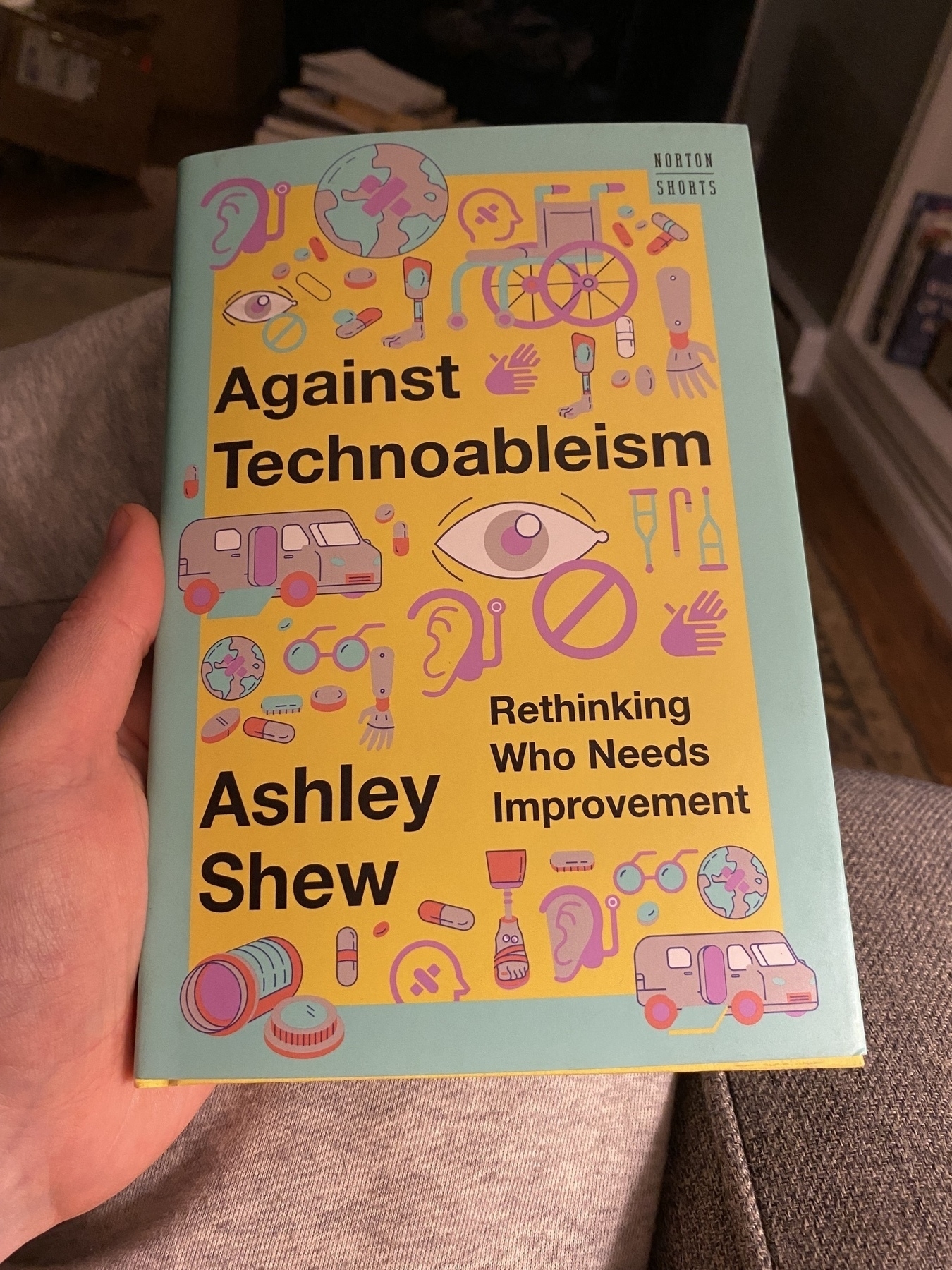

About to be currently reading: The Tatami Time Machine Blues by Tomihiko Morimi 📚
I picked this book of the library shelf along with 3 other thin hardcover novels or story collections: It’s Getting Dark by Peter Stamm My Monticello by Jocelyn Nicole Johnson The Invention of Sound by Chuck Palahniuk

Currently reading: My Monticello by Jocelyn Nicole Johnson 📚
📚 First 3 books of 2024
#The Invisible Kingdom by Meghan O’Rourke – Memoir about experiences navigating overlapping chronic illnesses and the Western medical system that is utterly unprepared to help people with ME/CFS and similar conditions, pushing many people to try unconventional and sometimes more holistic healing methods.
Survival of the Richest by Douglas Rushkoff (audiobook) – Entertaining non-fiction about late-stage capitalism and the mindset adopted by its modern god-emperors.
Silver Nitrate by Silvia Moreno-Garcia – A story of horror films and occultic magic set in 1990s Mexico.
Grateful to the volunteer crew of guys who came over to help push the piano across the yard, uphill, and into the house.
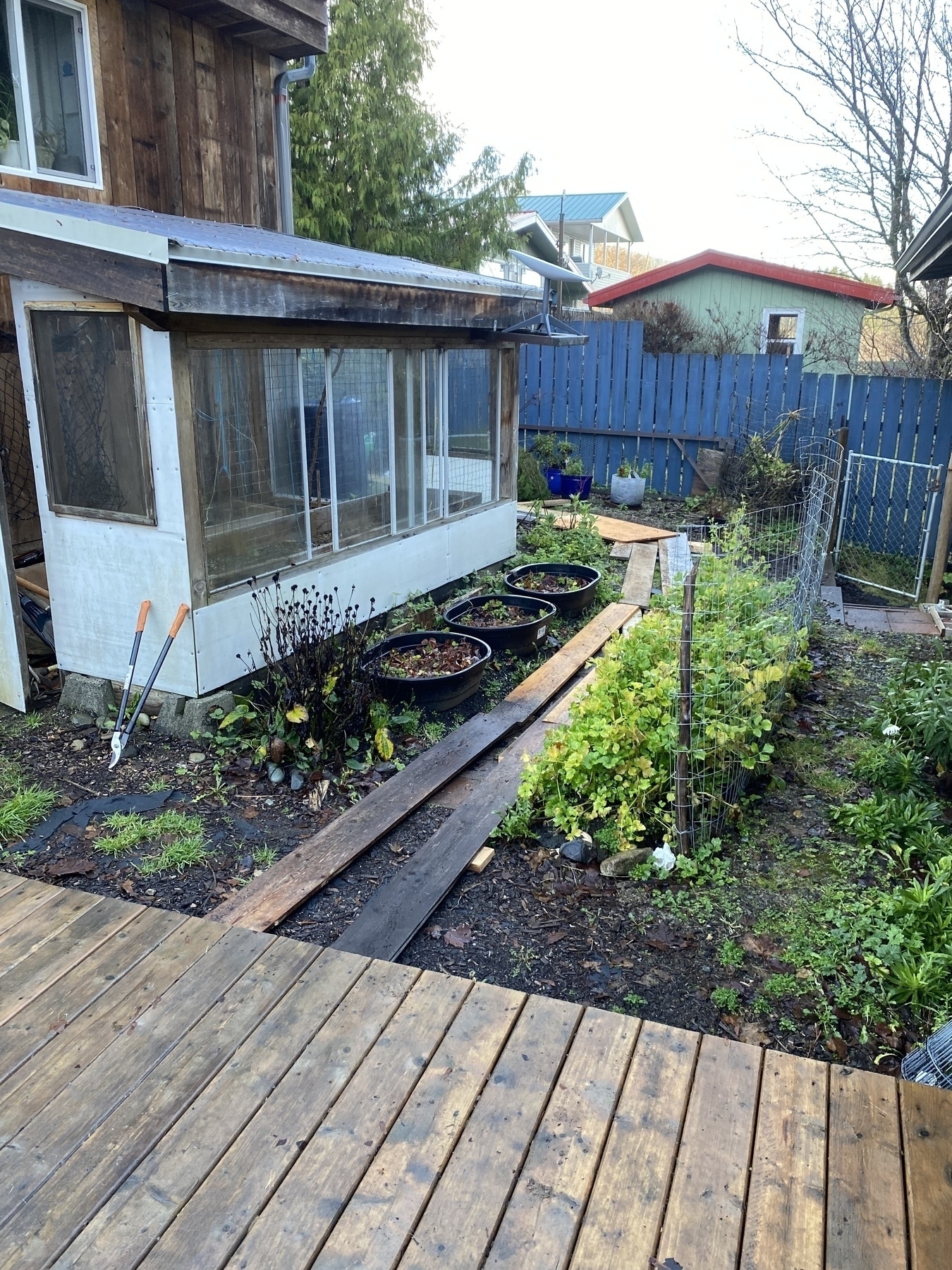
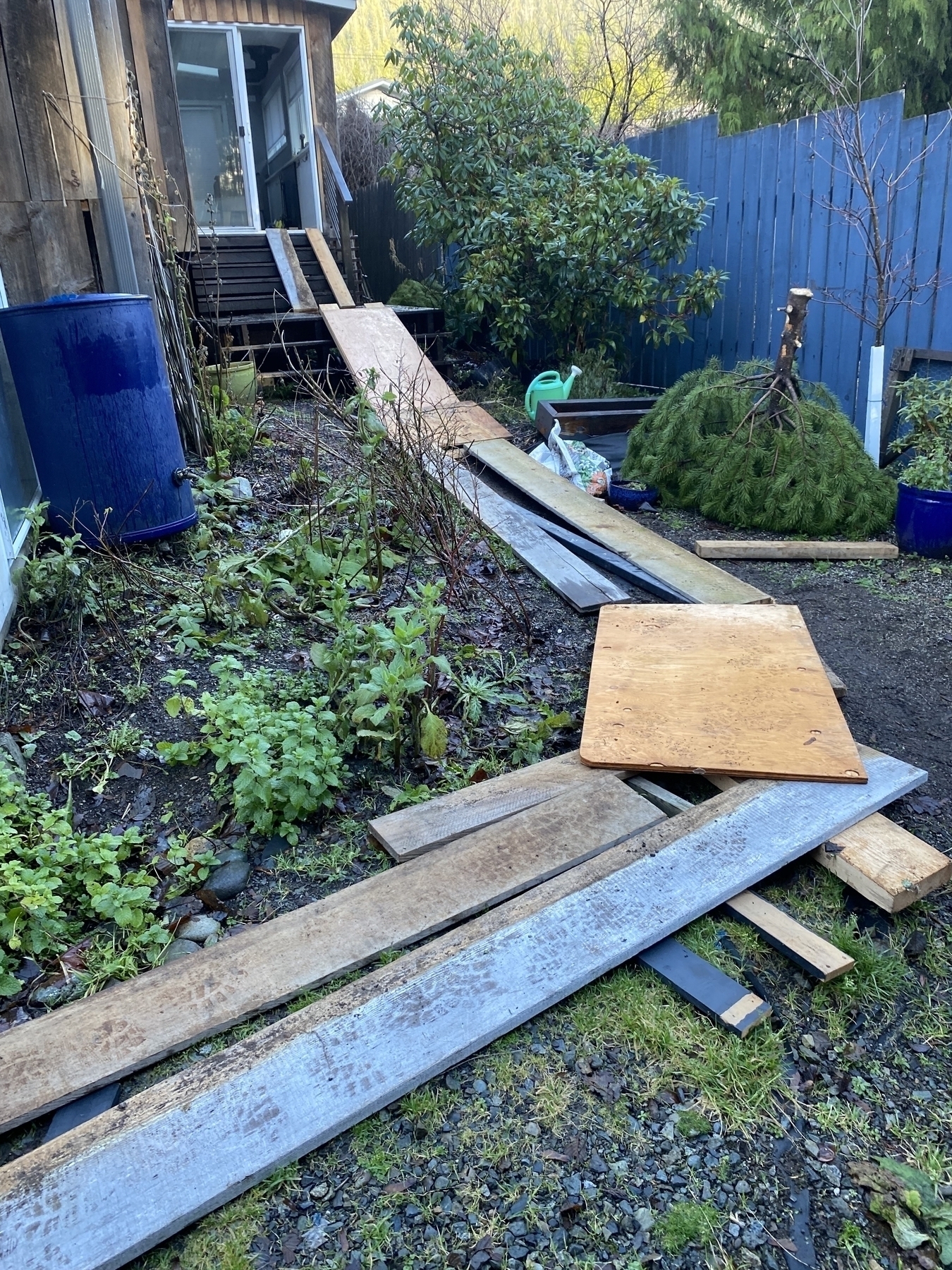

Finished Baldur’s Gate 3 today. Incredible game, 10/10
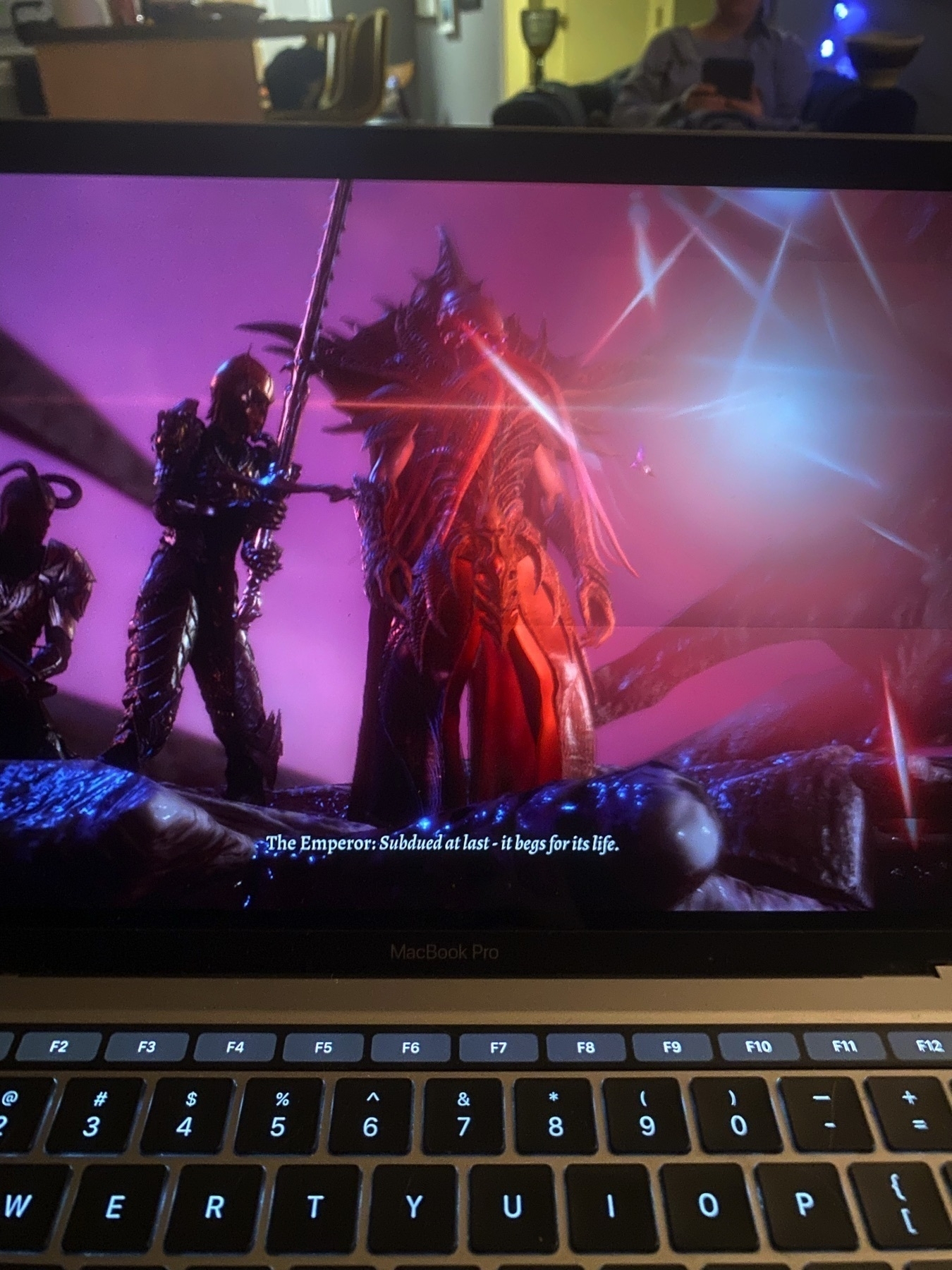
A monster list of mostly sustainable and regenerative actions happening in the travel industry: www.cntraveller.com/article/b…
Apparently gondolas are a transit option for airports in some places:
TIL ammonia production is a low-carbon, scalable way to store and transport hydrogen as energy.
The EU is counting up their scope 3 maritime emissions
#TIL the EU has an Emissions Trading System and that in 2024, it’ll include the maritime transport industry.
The interesting part is in one of the details:
“50% of emissions from voyages starting or ending outside of the EU and 100% of emissions from voyages between two EU ports and when ships are within EU ports.”
source: climate.ec.europa.eu/eu-action…
In other words, the EU is accounting for some scope 3 emissions. This seems like good news.
Aviation-wise, it only covers flights “within the European Economic Area and departing flights to Switzerland and the United Kingdom.” Not accounting for intercontinental emissions just yet. Maybe one day soon.
Mailchimp: Send now? y/n
Me:

8 ways life in the EU is becoming greener
An interesting page about how the EU is trying to cut net GHG emissions by 55% by 2030.
Learning about email spam filters today.
Whenever you need to feel insignificant, contemplate the number of email messages that are sent every day.
Every message that reaches its recipient is a miracle.

Currently reading: The Invisible Kingdom by Meghan O’Rourke 📚
A few chapters in, she’s writing about her experiences with her autoimmune illnesses and their interactions with Western medicine.
“Allostatic load” is a concept I hadn’t heard before. The higher your load, the more likely you are to develop an autoimmune disease, the theory goes.
🎶 Listening to an ambient track by Nils Frahm: “The Dog With 1000 Faces”
Climate's "front page paradox"
#This article asks: Why is there not enough political will to move with urgency?
www.outrageandoptimism.org/blog/what…
And points out that renewables are seeing exponential growth. This is the decade of change in energy.
…we should be discussing how we do this, not whether it ought to be done.
and:
For all the complexities of climate change, the big picture of what we need to do is not rocket science:
-
Turbo-charge investments into all clean energy alternatives: wind, solar, geothermal, batteries, green hydrogen, and green mobility.
-
Enact a global moratorium on all new oil and gas exploration and exploitation, encouraging oil and gas companies to shift their business model.
-
Regenerate nature.
Project Drawdown has a whole video series about climate solutions based in different places and neighbourhoods. There might be some good examples of local-focused actions.
Had a nice beach walk with the dog today. Felt good to get outside after a stressful few days.
Btw I’ve left behind my NaNoWriMo novel… for now.
Getting ready for a piano gig next week that will take most of my extra energy.
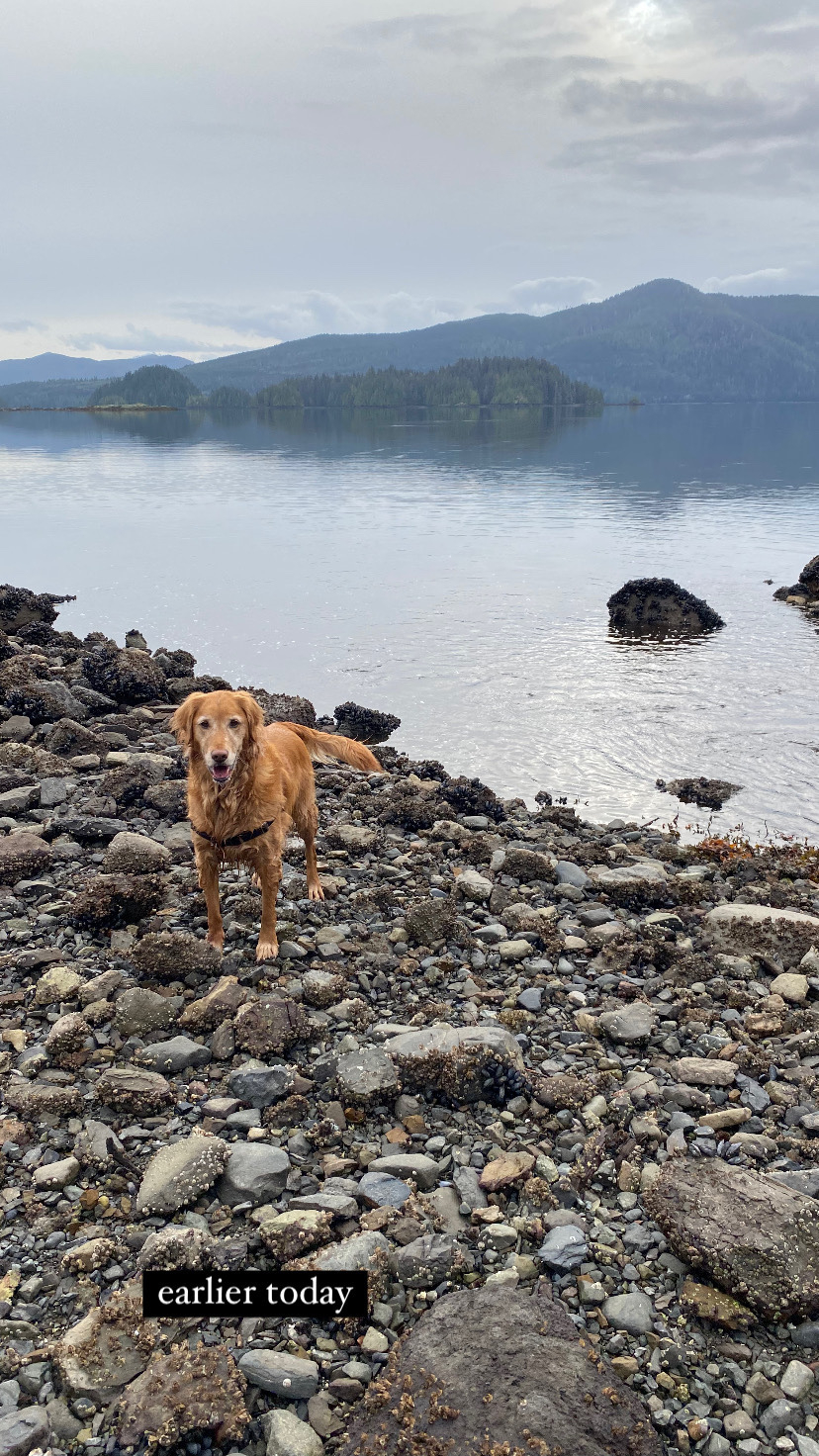
Short history of independent publishing
#An interesting and thorough account of the evolution of independent publishing and the current sponsorship-driven model.
Same same for the music biz:
“The ratio was something like 1:10,000. Meaning that for every one person you could convince to subscribe, donate, become a member, or support you on Patreon … you would need 10,000 visitors to make the same amount from advertising. Or to put that into perspective, with only 100 subscribers, I could make the same amount of money as I used to earn from having one million visitors.”
"Tourists are like bees"
#From an article on responsible real estate reporting in luxury travel destinations by Naka Nathaniel:
“Tourists are like bees: I don’t want a bunch of them circling around me, but I also don’t want them to disappear. It’s a delicate balance,” she wrote. “Tourists stick out and may not observe local norms, which can inspire petty grumblings and genuine anger from locals. But they’re a sign that the city is doing something right. Show me a city without tourists, and I’ll show you a city in decline.”
The source of Naka’s quote is “New York Is To Expensive to Even Visit”